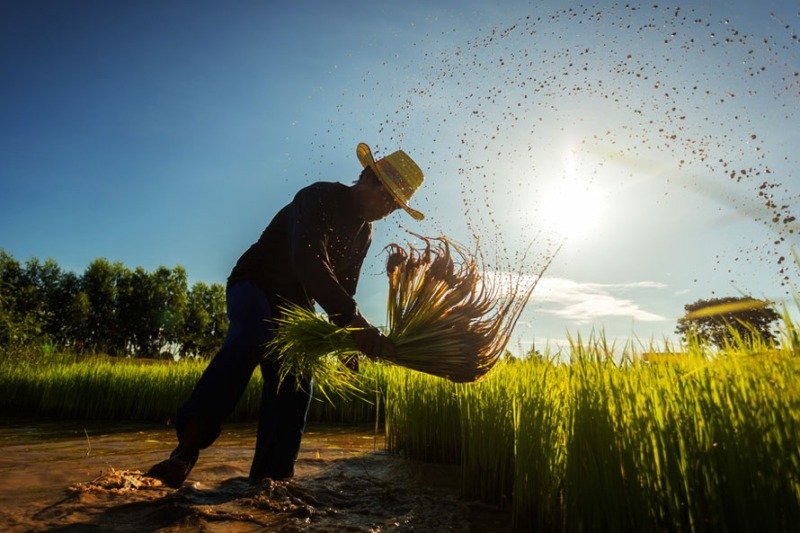Philadelphia Eagles training camp hints at problem only trade might

Rachid Mrabet advocates ecological agriculture to save the planet

“Half measures are no longer an option“, insisted the IPCC (Intergovernmental Panel on Climate Change) when the new report was released on Monday April 4, 2022. Indeed, the UN experts recalled that it is not too late to fight climate change, but that every “additional delaydiminishes the human chances of building a livable future.
The call could not be clearer, all sectors must be involved in reducing gas emissions, insists the group of experts. And if there is one in particular apart from those of energy and transport, it is that of agriculture which, with a slyness, manages to pass somewhat unnoticed. Casually agriculture accounts for almost a quarter (between 22 and 24%) of global greenhouse gas (GHG) emissions. Energy and transport are therefore not solely responsible for climate change. Let it be said, agriculture, this essential economic sector, of its animals and its field crops, contributes heavily to global warming.
Rachid Mrabet, Doctor of Philosophy and Research Director at the National Institute of Agronomic Research (INRA) in Morocco, is one of its experts who participated in the development of the latest IPCC report, finalized in its third part last Monday. He indeed coordinated chapter 7, devoted to the sector of agriculture, forestry and other land uses (Afat, or Afolu in English). Reconciling scientific rigor and commitment, Rachid Mrabet explains how the agroecological revolution is a concrete, feasible and global response to the various scourges of the planet. By focusing precisely on the question, the INRA research director will have addressed carbon storage, the change in agricultural production methods and described the changes in our food consumption as the major solutions for reducing the carbon footprint of agriculture, which is on the podium of the most polluting sectors, energy and industry.
According to the doctor of philosophy and director of research at INRA, all the resulting problems are linked, their solutions can no longer be studied separately. To feed the 10 billion inhabitants in 2050, it will have to reconcile the food security of this humanity with the need, just as vital, to reconstitute gigantic green spaces to make them effective carbon sinks in order to achieve carbon neutrality at this date, depending on climate ambitions. He remains optimistic about this and indicates that ways of mitigating global warming exist as in any case for that of agriculture like other sectors.
The latter offers a greater package of options and it can reduce emissions as a sector in its own right and at lower cost. For Rachid Mrabet, fervent defender of agroecology, this is the best way to design production systems that rely on the functionalities offered by ecosystems. For example for the forestry system: between 4.2 and 7.4 Gt of CO2 equivalent per year can be absorbed by reforestation or by having better forest management and by limiting deforestation, especially in the tropics. A more sustainable and improved management of soils, whether pastoral or agricultural, as well as livestock and rice fields must be in order according to Mrabet. But also agroforestry, conservation agriculture, organic farming which recovers organic matter in the soil and therefore stores carbon. It will be approximately between 1.8 and 4.1 Gt which each year would not be emitted into the atmosphere.
But not only for our most recognized specialist in agroecology, there is also everything to do with diets and our individual behaviors (junk food, pollution, global warming, loss of biodiversity, global inequalities, food waste or forced migrations …). This behavior must be healthier, more balanced, more sustainable and based more on vegetable than animal consumption. This represents a good source of attenuation, around 2.1 Gt. A package of options, according to the research director, which would make it possible to reduce emissions between 20 and 30% to stay below a warming of 2°C.
.
